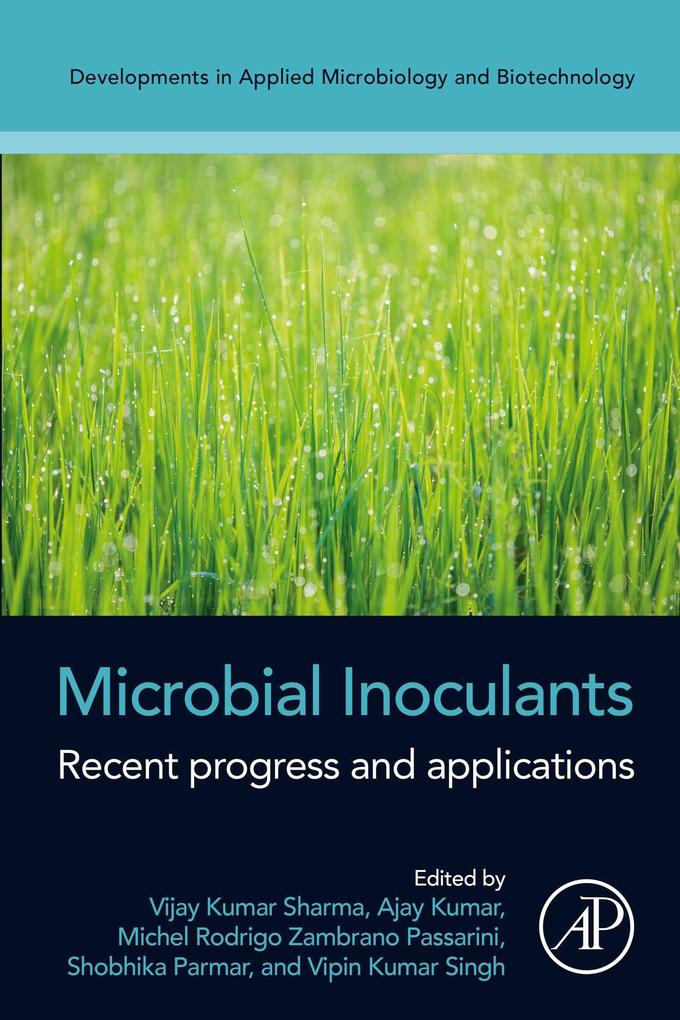
Sofort lieferbar (Download)
In the recent past, beneficial microorganisms have been sustainably used in agriculture as a safe, economic, and effective alternative to chemical fertilizers or pesticides. These beneficial microbes, including bacteria, actinomycetes, and yeast, were efficiently applied in soil, seeds, fruits, or plants as inoculants, to achieve the optimum agricultural yield.
An efficient delivery method or enhanced shelf life of microbial inoculants in the soil or seed is still a matter of concern. The response of local genetic or ecological factors, after microbial applications, are also unknown and less studied. Therefore, Microbial Inoculants: Recent Progress and Applications fulfills the need to explore and learn about an efficient delivery mechanism, selection of microbial strain as inoculants, and related technological advances, for the efficient and productive use of microbial inoculants. Moreover, factors like methods of formulation, interaction between host plant and microbe, impact of inoculation on the metabolomics of plants, the effect of microbial inoculants on soil dynamics, proteomics approach of plant-microbe interaction, as well as the registration and regulation process of bio inoculants for commercial production are described in 16 chapters by the leading academicians and researchers from different parts of the world.
An efficient delivery method or enhanced shelf life of microbial inoculants in the soil or seed is still a matter of concern. The response of local genetic or ecological factors, after microbial applications, are also unknown and less studied. Therefore, Microbial Inoculants: Recent Progress and Applications fulfills the need to explore and learn about an efficient delivery mechanism, selection of microbial strain as inoculants, and related technological advances, for the efficient and productive use of microbial inoculants. Moreover, factors like methods of formulation, interaction between host plant and microbe, impact of inoculation on the metabolomics of plants, the effect of microbial inoculants on soil dynamics, proteomics approach of plant-microbe interaction, as well as the registration and regulation process of bio inoculants for commercial production are described in 16 chapters by the leading academicians and researchers from different parts of the world.
- Sums up the latest approaches and advancements in the field of microbial inoculants in microbial formulations and applications.
- Proofs the potential development and applications of microbial inoculants as an alternative to chemical fertilizers, herbicides and pesticides.
- Shows the impact of microbial inoculants on microbial dynamics, bioavailability and abiotic stress mitigation.
- Gives insights on emerging challenges with the commercialization of microbial formulations, technology patenting and legal perspectives.
Mehr aus dieser Reihe
Produktdetails
Erscheinungsdatum
26. Mai 2023
Sprache
englisch
Seitenanzahl
384
Reihe
Developments in Applied Microbiology and Biotechnology
Herausgegeben von
Vijay Kumar Sharma, Vipin Kumar Singh, Michel R Zambrano Passarini, Shobhika Parmar, Ajay Kumar
Verlag/Hersteller
Kopierschutz
mit Wasserzeichen versehen
Produktart
EBOOK
Dateiformat
EPUB
ISBN
9780323990448
Entdecken Sie mehr
Bewertungen
0 Bewertungen
Es wurden noch keine Bewertungen abgegeben. Schreiben Sie die erste Bewertung zu "Microbial Inoculants" und helfen Sie damit anderen bei der Kaufentscheidung.


































